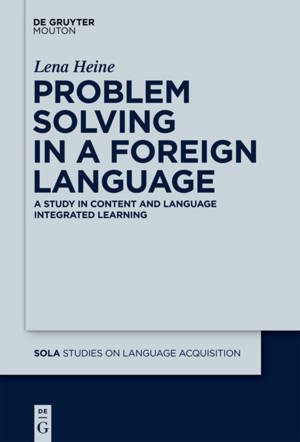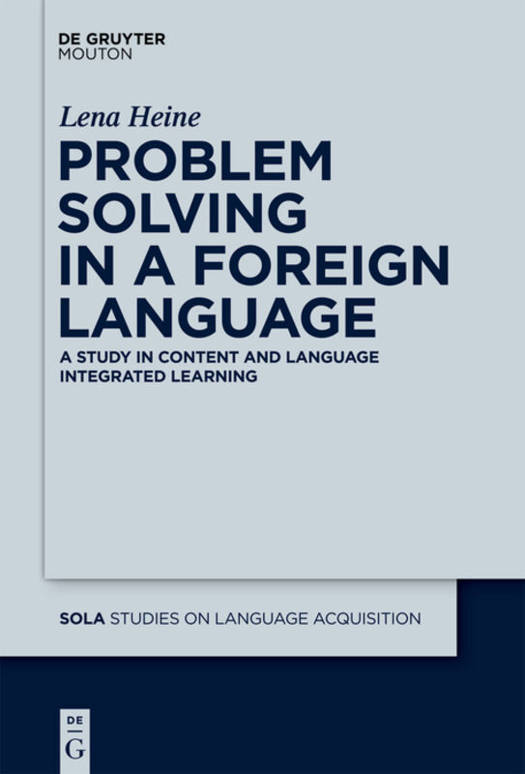
- Afhalen na 1 uur in een winkel met voorraad
- Gratis thuislevering in België vanaf € 30
- Ruim aanbod met 7 miljoen producten
- Afhalen na 1 uur in een winkel met voorraad
- Gratis thuislevering in België vanaf € 30
- Ruim aanbod met 7 miljoen producten
Problem Solving in a Foreign Language
A Study in Content and Language Integrated Learning
Lena HeineOmschrijving
Although Content and Language Integrated Learning (CLIL) is a popular teaching method, research on CLIL has nearly exclusively focused on aspects of language learning. Besides that, we are still lacking any cognitively well-grounded theory about the special features of contexts in which the focus is on content learning, but in which a foreign language is used as the medium of communicating information.
This book re-examines the basis for CLIL from a cognitive perspective and investigates how the use of a foreign language as a working language influences the processing of content. It summarizes findings from cognitive psychology on thinking, problem solving and conceptual processing, and integrates them with models of language-specific mental activities such as speech processing and text composition. This provides a theoretically well-grounded basis for the understanding of the special features of CLIL, and promotes a Cognitive Linguistic perspective on CLIL pedagogy.
The theoretical considerations form the basis for an empirical study that offers the first insights into what CLIL learners actually do when they solve content-focused tasks while using an L2. Through spontaneous verbalization of thought, detailed verbal protocols were elicited and analysed into language and content focused cognitive processes. The analysis shows that both language and conceptual thought interact closely and that a focus on language in general has positive effects on the processing of semantic content; the use of an L2 as working language can enhance this effect. Additionally, the study offers a thorough reflection and new perspectives on verbal protocols as research tools, in particular in L2 contexts.
Specificaties
Betrokkenen
- Auteur(s):
- Uitgeverij:
Inhoud
- Aantal bladzijden:
- 226
- Taal:
- Engels
- Reeks:
- Reeksnummer:
- nr. 41
Eigenschappen
- Productcode (EAN):
- 9783110224450
- Verschijningsdatum:
- 17/03/2010
- Uitvoering:
- Hardcover
- Formaat:
- Genaaid
- Afmetingen:
- 156 mm x 234 mm
- Gewicht:
- 503 g

Alleen bij Standaard Boekhandel
Beoordelingen
We publiceren alleen reviews die voldoen aan de voorwaarden voor reviews. Bekijk onze voorwaarden voor reviews.









